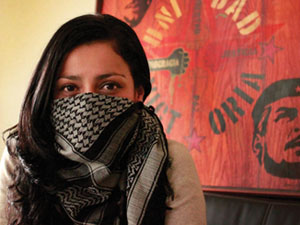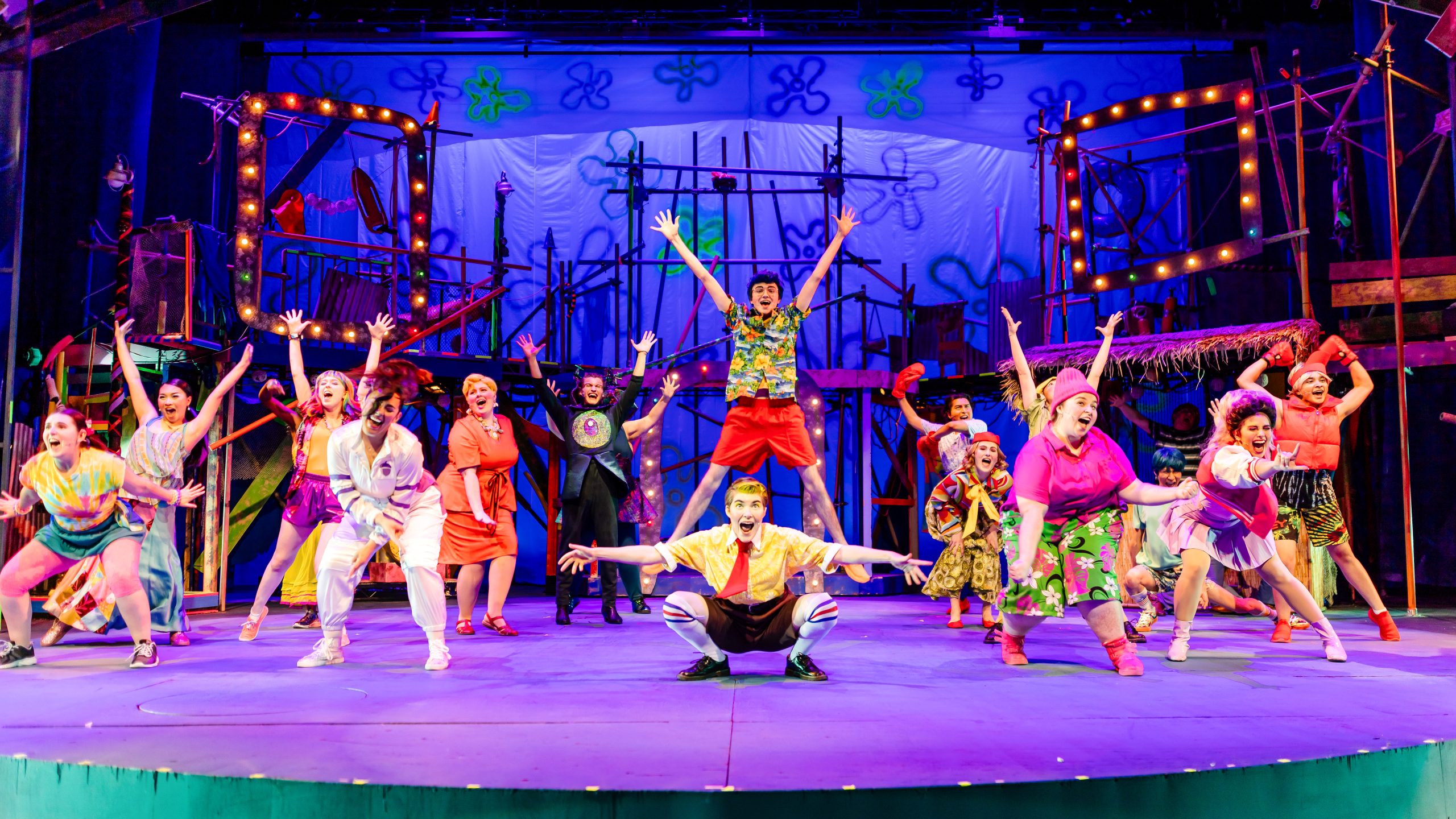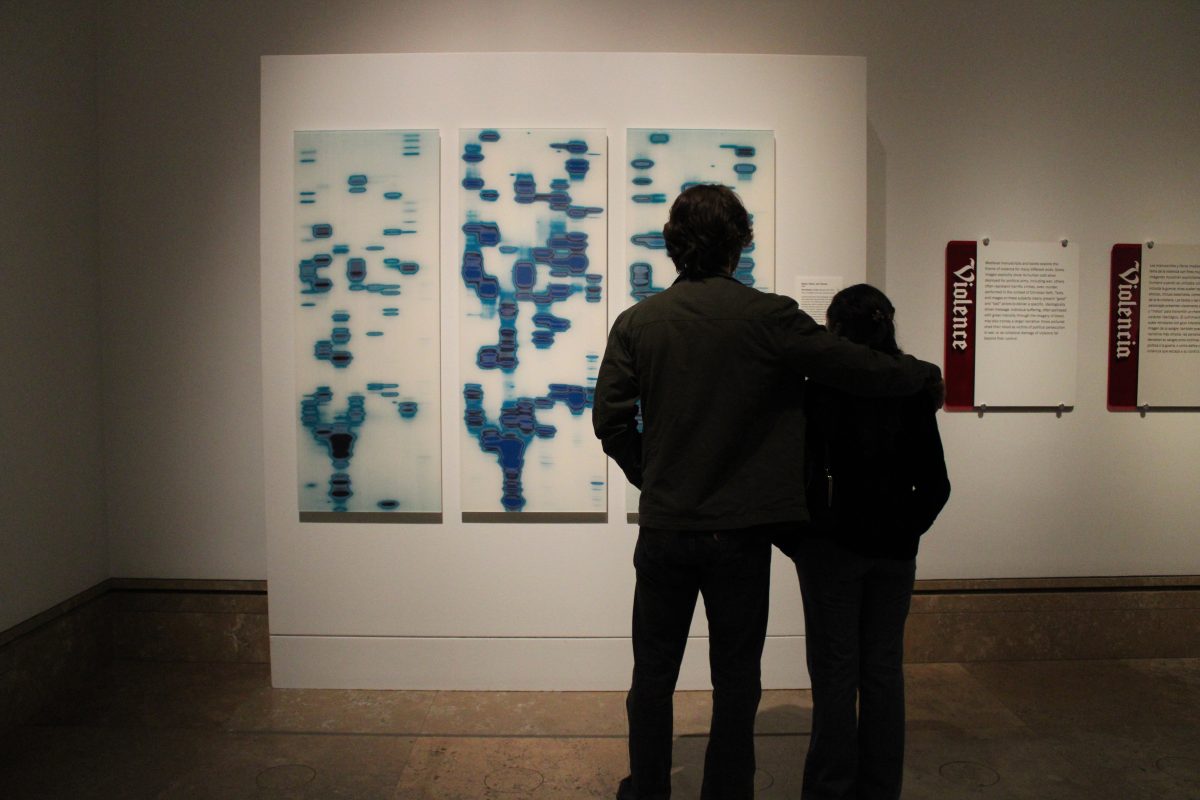
Once upon a time music meant something.
Harsh, huh?
Peaking in the ’60s and ’70s, protest music, music based on social justice, a call to change, a righteous condemnation of the Vietnam War, a ballad in support of Nelson Mandela and against the apartheid government of South Africa, songs about overcoming racism, sexism, division—all this, all of it, was here in the U.S. And it was mainstream. It wasn’t some underground movement where DJ’s were rounded up and arrested for broadcasting subversive verse. Or a marginalized style of music that only appealed to a handful of people.
No, we’re talking about top 40 hits. Music that, even currently, is still listened to, their records are still being purchased (or downloaded as pirated mp3s).
No, we’re talking about The Mammas and the Poppas, Joan Boaz, Bob Dylan, Crosby, Stills, Nash and Young, The Byrds, Phil Ochs, John Lennon, The Beatles, Pete Seeger, The Doors and a list long enough to bring any contemporary musician to his or her knees in shame and embarrassment.
So what happened?
How did the Billboard top 40 of 1967—and well into the 70s, really — go from featuring groups that were known for their social commentary songs, such as The Beatles, the Mamas and the Poppas (three times), the Doors (twice) and Buffalo Springfield to the Billboard top 100 of 2012 including Nicki Minaj, Rihanna, One Direction, Drake and something called a Justin Bieber and LMFAO.
Arguably, it could be said that the good socially-conscious singer-songwriter is dead. But the truth is socially conscious musicians are not gone; they’ve been with us since the earliest days of modern music, such as the legendary, Oklahoma-born working class troubadour Woody Guthrie.
Haven’t heard of Woody? Actually, yes you have. You know that one tune that always seems to give you a warm fuzzy feeling inside of your chest whenever you hear the chorus, “This land is your land/This land is my land/ From California to the New York Island/From the Redwood forest to the Gulf Stream waters/This land was made for you and me.” But Guthrie’s identity has been quieted and nearly squashed — his radical politics, his speaking out in public against the rise of fascism in Europe and Spain, his speaking against the police and military repression against organizing laborers in the U.S.
But aside from Pete Seeger (who will be turning 94 this year—God willing) and Bruce Springsteen, one might think: crap, what if I don’t like folk music?
Fear not! There are actually great socially conscious groups of all stripes around, just not in the mainstream, touring and producing music regularly. Let’s do this by genre:
Rock:
Chicago melodic punk/heavy rockers Rise Against is one of the rock bands that are enjoying mainstream success while creating music that actively raises awareness for various issues including LGBTQ discrimination (Check out the music video for their song “Make it Stop”), animal rights, anti-consumerism and anti-war causes.
System of a Down, Armenian-American alternative heavy rock band had an overtly political message and enjoyed mainstream success immediately following their debut self-titled album in 1998. Some of their songs include “B.Y.O.B.”—a strange, non-linear critique on militarism—off their 2005 release Mezmerize and “Boom!”from their 2002 release Steal this Album!
But what kind of a critic would I be if I didn’t mention late ’90s Rage Against the Machine here, right? Sure, they broke up in 2000, with members pursuing side projects (Audioslave, The Nightwatchman, One Day as a Lion). They reunited in 2007 and performed at the annual, overly-priced, promotionally-bloated Coachella Valley Music and Arts Festival, with subsequent touring. Unfortunately, the fate of Rage Against the Machine is up in the air. Although technically together, there is no strong evidence that any new studio material will be released. Nonetheless, the heavy fusion of metal, hard rock and hip-hop drumming and vocal style mixed with Tom Morello’s unique whammy-bar-driven guitar work has created something that will never be matched or surpassed in the genre of social protest rock.
Folk:
I know, I know. You don’t like folk music, right? Well, what if I told you that you probably don’t even know what folk music is? You’re an asshole, you’d say. Well, yes, but that notwithstanding much can be said in the defense of folk. Folk music is generally accepted as having its traditional roots in the poor and working class perspective. Although typically associated with guitar and banjos, folk music isn’t just performed with string instruments — folk music is found all over the world and in many places, drums and flutes are the main instruments.
Conor Oberst, guitarist, lyricist and frontman for Nebraska’s Bright Eyes is perhaps one of the best, leading examples of the survivability of folk music. Although Oberst’ lyrical content is dominated by commentary on personal relationships (often dwelling on the doomed nature of the singularity of human romance, or something like that) but there has always been a consistent social commentary in all of his records, especially in the 2005 release “I’m Wide Awake, It’s Morning.”
Hip-Hop:
There is this ghastly, god-awful, techno-drenched, auto-tuned abomination that is — for whatever reason—dubbed as hip-hop that is played on the airwaves today. Lil Wayne, T.I., Young Jeezy and Rick Ross are arguably some of the worst lyrical rappers ever to wrap themselves in the flag of sexist, empty, profit-glorifying capitalist, soulless hip-hop. But for the sake of brevity, let’s just say that this, too, can be called hip-hop (Seriously, check this garbage out about selling dope on iPhones, playing pool and strippers).
OK, this is turning into a rant against empty-hearted music so I’ll stop. Fuck Rick Ross, though. Seriously.
Basically, hip-hop — much like folk music (bet you’ll never see that pairing of words again) — started off as musical social commentary. Such acts like Grandmaster Flash and the Furious Five and then later on KRS-One and Public Enemy are prime examples of smart, socially commentary hip-hop.
For good conscious hip-hop, look no further than East Los Angeles with such acts as Olmeca or Cihuatl Ce, who are roommates. Both have been around for years. Olmeca has played with other well-known socially conscious hip-hop acts such as KRS-One — who is still playing, by the way. In the vein of old school conscious hip-hop, there has been a resurgence of more contemporary conscious hip-hop acts, such as Dead Prez, Immortal Technique, Lupe Fiasco, The Coup, Lowkey, Mos Def, Sole, Talib Kweli, Brother Ali and many others.
Cihuatl Ce is the performance name of Xela de la X, who has been performing since her early 20s. She tours regularly, often times performing out of state at festivals and at universities. Despite her critique on mainstream music, one of Xela’s favorite contemporary artists is Drake.
“People judge me when I say that, but I don’t give a fuck. I love that guy,” she said.
As far as artists from the past, Xela draws a lot of influence from Riot Grrrl and punk rock bands such as Bikini Kill, Naked Aggression and Los Crudos, which comes across through her insistent, up-front lyrical styling and stage presence. She describes her music as “aggressive, unapologetically militant feminist, gutter music from the streets and the people.”
“Mainstream (music) is mad misogynist… If they’re speaking about rebellion and revolution and making change, that shit you don’t hear on the radio,” Xela said.
When artists do decide to speak on these issues, often it is not featured on the radio, as you may have noticed.
“Although I would say the exception to that in mainstream music would be Lupe Fiasco. He’s pretty on-point,” she said.
Many of these groups have transcended the act of simple social commentary with many practicing what they preach, such as Brother Ali. Back in June 21, 2012, Brother Ali (full name Ali Douglas Newman) was arrested for taking part in a protest against a home foreclosure in Minneapolis.
All conscious rappers nowadays, big or small, have been involved with grass-roots efforts in social justice movements. Olmeca, a steadfast community and political activist, who has spoken and performed at CSUN on several occasions over the years.
I had the privilege to see Olmeca and DJ Phatrick perform in Echo Park for a Woody Guthrie tribute at El Centre Del Pueblo back in July 14, 2012. Here is where I saw the ease and poetry in which Olmeca, a revolutionary Chicano hip-hop artist, was performing and historically connecting with one of the greatest American folk singer-songwriters. Woody was a resident of Los Angeles for several years in his life and regularly visited and performed for multi-ethnic migrant farm workers.
Woody, like Olmeca or KRS-One, Conor Orbest and Bob Dylan, are those types of musical artists that are completely consumed by their art and its potential not just to document the injustices of society, but ultimately to transform it entirely.
So, although you may not hear a lot of protest songs on the radio or on the television, do not despair. The protest song is alive and well, but as most good music nowadays — it requires a little bit of searching.
Xela doesn’t see a decline in the demand for socially conscious music. It’s not a matter of that. The people want it. It’s a matter of who is standing in the way of allowing this music to be heard on the radio or on television. Which I am tempted to agree with. Think about it. It restores your faith in humanity knowing that we don’t want Justin Bieber or Lil Wayne.
“I think that whatever is being played is not because the masses are asking for it,” she said. “It’s what’s being fed to us. Definitely, I think there’s a degree of people being tired of the monotony of the messages in the mainstream.”






